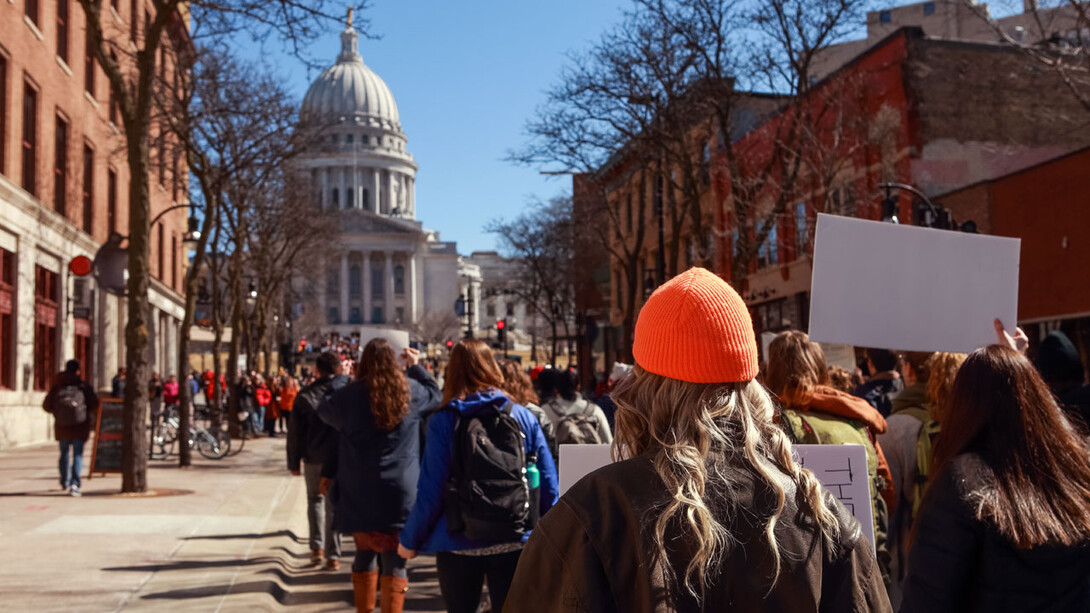
Civic knowledge and community engagement is no game. But Nebraska researchers are developing a project that leverages some good, clean online fun to help develop and encourage good citizenship.
Evan Choi, associate professor of child, youth and family studies, is leading a pilot project designed to provide civics, entrepreneurship and leadership education to at-risk youth from two of Nebraska’s highest-poverty communities through an innovative learning program based on interactive online games and simulations.
“This is important because we can help middle school students understand the importance of civic engagement,” Choi said. “We want them to know how to reach out, and to whom, so their voices can be heard.”
The five-year project, which is housed at the Nebraska Center for Research on Children, Youth, Families and Schools, targets socio-economically disadvantaged children in low-income neighborhoods. Participants include at-risk seventh- and eighth-graders from Douglas and Scotts Bluff counties, which have large low-income, racial and ethnic minority populations. Students will be recruited in cohorts of 20 students per site, and the number of cohorts will gradually increase over time.
The game-based learning model is designed to help participants engage with topics and ideas through interaction and simulation, rather than the more-conventional textbooks, classroom teaching and assignments. Two evidence-based curricula will be incorporated — iCivics and Lean LaunchPad.
iCivics is an online simulation tool developed by former Supreme Court Justice Sandra Day O’Connor, who is passionate about young children learning policy advocacy and legislative process. The free resource is used by schools in more than 20 states. It uses dozens of online games and other learning tools to promote citizenship and civic engagement.
Lean LaunchPad is an experimental learning tool designed to improve entrepreneurial problem-solving skills.
The curriculum will be developed for a five-day summer camp program with a variety of interactive and educational activities, including field trips, site visits, documentary film viewing, team building, idea brainstorming and group discussions. One week later, the program’s graduates will reunite at the Nebraska State Capitol, or at a local legislative office, to present their ideas to lawmakers and other stakeholders.
Participating youth will complete a baseline assessment, and will then complete one-, three- and six-month follow-up assessments to measure program outcomes.
With support from the USDA-National Institute of Food and Agriculture, Choi and his team are developing the pilot curriculum and testing feasibility for the project. Beginning later this year, the curriculum will be refined and expanded, then adapted for after-school programs and integrated into 4-H Extension programming.
Along with Choi — a CYFS research affiliate — other research team members include Co-PIs Maria de Guzman, associate professor, CYAF, and Surin Kim, assistant professor textiles, merchandising and fashion design; Gilbert Parra, associate professor, CYAF; and collaborators Andy Larson, Nebraska Extension educator; Nathan Rice, Nebraska Extension educator, Scotts Bluff County; and Stephanie Thorson, Nebraska Extension educator, Douglas and Sarpy Counties. The team will also include doctoral research assistants.
Choi aims to teach children how to identify their neighborhood’s legislators and how to take collective action, such as raising environmental or racial awareness.
“It is essential for students to know how to reach out to policymakers,” he said. “We want to help them think through the whole process, from identifying issues to developing solutions and actions they can take.”
Confidence is essential to policy advocacy, Choi said — especially in lower-income neighborhoods and communities.
“I didn’t have those opportunities at an early age, so there were times I felt vulnerable and as though there weren’t many things I could do,” he said. “We want to ensure students have good problem-solving skills, and the ability to identify good alternatives and potential solutions to challenges they face.”







